Search
Search Results
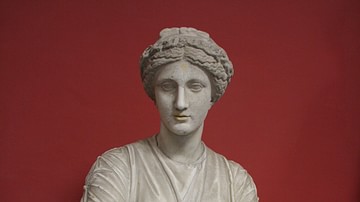
Definition
Muse
In Greek mythology, the nine Muses are goddesses of the various arts such as music, dance, and poetry. Blessed with wonderful artistic talents, they also possess great beauty, grace, and allure. Their gifts of song, dance, and joy helped...

Definition
Lasus of Hermione
Lasus of Hermione was a celebrated 6th century BCE Greek lyric poet and musician credited with making significant innovations in Greek music. The Suda (a large Byzantine record from the 10th century CE) dates his birth to the 58th Olympiad...
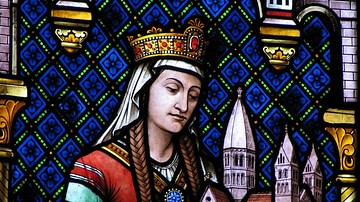
Definition
Hildegard of Bingen
Hildegard of Bingen (also known as Hildegarde von Bingen, l. 1098-1179) was a Christian mystic, Benedictine abbess, and polymath proficient in philosophy, musical composition, herbology, medieval literature, cosmology, medicine, biology...
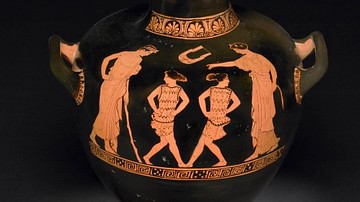
Definition
Ancient Greek Dance
In ancient Greece, dance had a significant presence in everyday life. The Greeks not only danced on many different occasions, but they also recognized several non-performative activities such as ball-playing or rhythmic physical exercise...
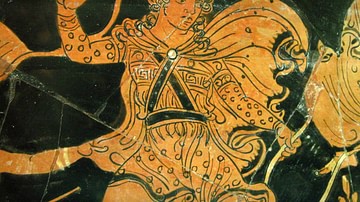
Definition
Orpheus
Orpheus is a figure from ancient Greek mythology, most famous for his virtuoso ability in playing the lyre or kithara. His music could charm the wild animals of the forest, and even streams would pause and trees bend a little closer to hear...

Video
Ancient Greek Music by Prof. Stefan Hagel
Professor Stefan Hagel performing Ancient Greek Music at palaestra et odeum - Lund - Sweden.
Instruments: Greek Kithara & Aulos
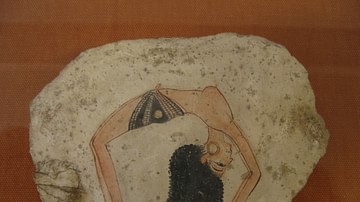
Article
Music & Dance in Ancient Egypt
Music and dance were highly valued in ancient Egyptian culture, but they were more important than is generally thought: they were integral to creation and communion with the gods and, further, were the human response to the gift of life and...
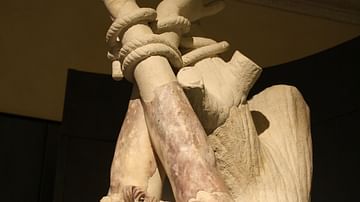
Definition
Marsyas
Marsyas the satyr, or silen, was seen as a mythological founder of aulos playing or a divine judge of it by the ancient Greeks. The way in which his aulos playing enraptured his audience was likened to the way in which Socrates mesmerised...
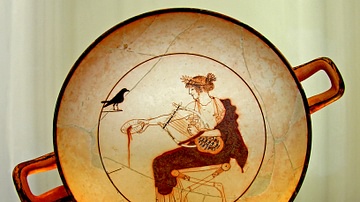
Definition
Lyre
The lyre was a stringed musical instrument played by the ancient Greeks. It was probably the most important and well-known instrument in the Greek world. The lyre was closely related to the other stringed instruments: the chelys which was...
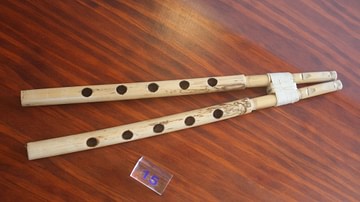
Definition
Aulos
The aulos was a musical wind instrument played by the ancient Greeks. It was also known as the kalamos or libykos lotos, which referred to the material from which part of the instrument was made: respectively, the reed and the Libyan lotus...